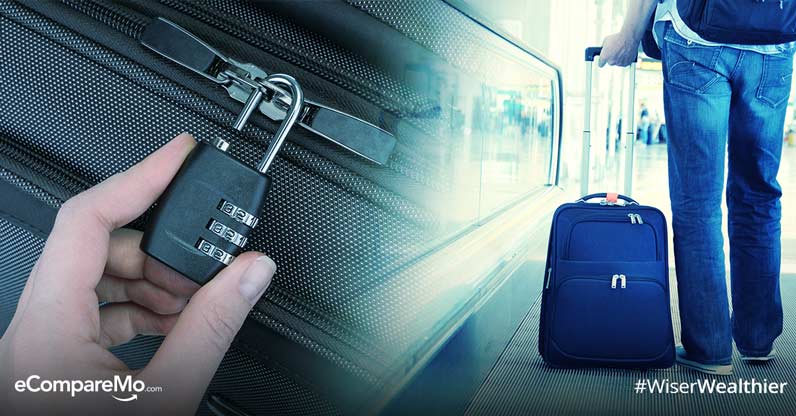7 Ways To Keep Your Luggage Safe While Traveling
3 min readIn January of this year, six ground handlers from Clark International Airport were charged with qualified theft after a video showing how a passenger’s luggage was pilfered went viral online.
Such incidences remind us one thing about traveling: That one should always hope for the best and prepare for the worst. Part of your preparations should always be securing your luggage not only from damages but also, as news like this prove, possible theft.

How do you make sure your belongings are safe every time you fly? Here are the ways you can double up on luggage security from the time you check in at the airport to the time you land.
1. Use durable locks and tough luggage.
As much as you want to always be near your valuables, it’s not always be the case when traveling. Even airport luggage screening procedures may damage the locks on your luggage.
Make sure you opt for a heavy-duty lock, preferably one with a lockpick resistance feature. Tamper-resistant luggage is also worth the investment especially if you travel often and have to bring expensive items. There are also tamper-resistant bags with features such as anti-slash fabric and anti-puncture zippers.
2. Zip ties should come in handy.
Zip ties may only be plastic, but it makes tampering with your luggage difficult. If the ties are broken or you see some ties missing, inform the security officer that your bag has probably been tampered with. This is a strong defense against the planted contraband modus.
(Read: Survival Tips For A Fun And Safe Travel Adventure)
The common colors are black and white ones, but it is advisable to add extra colors for easier identification at the conveyor.
3. Be cautious about using public lockers and safes.
Safes and lockers in hostels or train stations are prone to becoming compromised as they can be accessed by other travelers and even employees. High traffic in commercial and shared amenities means higher possibility of override keys and lock codes. Even safes in hotels can be opened by striking of the topmost part of the safe while turning the handle.
4. Stash valuables in unconventional places.
When thieves decide to strike, they will come looking for your wallet, cellphone and other valuables in the obvious compartments first. Hide your valuables and expensive items in hard to access places where thieves might not immediately check. For example, hide some cash inside folded pieces of clothing or in empty toiletry bottles.
5. Never lose these three essential things.
Clothing, snacks and other items can be bought and replaced. What you cannot afford to misplace are your travel documents, (passport, booking confirmations, transportation tickets), your credit/debit card, and your cellphone.
Your travel documents are essential to your trip. Your phone allows you to contact relevant persons in case of travel emergencies and can also help you find your way with map apps and functions. A credit/debit card allows you to purchase goods and services, and even get money whenever you need it.
(Read: 4 Things Every Traveler Should Know About Using Their Credit Card Abroad)
Also, if you have a serious chronic illness, you should always keep your prescription medications close by and secured as special treatment medicine cannot be replaced instantly.
6. Be alert to scams and street modus.
No matter how civilized and urbanized an area is, you still need to watch your back for scams. One of the common scams are mendicants asking for alms on the street with a partner accomplice who would grab your valuables while you’re off your guard. Don’t easily trust a stranger even when they are nice and be mindful of your valuables.
7. Always insure your trip.
Losing valuables is inconvenient and replacement of stolen items will cost you money. While you are taking all the right security measures to safeguard your belongings, a travel insurance will provide the maximum peace of mind. Getting the right travel insurance policy will cover your valuable items in case of theft. A comprehensive insurance coverage also includes riders for delayed flights and lost baggage.
Sources: Student Universe, Smarter Travel, CNN Philippines, World Nomads, Travel Insurance Review
